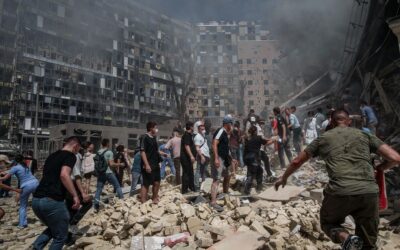 The Umbria, Veneto and Sicily regions of Italy hosted the second edition prize-winners of the Chiara Lubich Fraternity Award. Their gaze extended over the whole world with an international award given to the city of Catamarca and its fight against crime, with a special mention of the town of Pollica.
The Umbria, Veneto and Sicily regions of Italy hosted the second edition prize-winners of the Chiara Lubich Fraternity Award. Their gaze extended over the whole world with an international award given to the city of Catamarca and its fight against crime, with a special mention of the town of Pollica.
The award ceremony was held in the presence of civil and religious authorities, numerous mayors and citizens. There were awards for the Commune of Massa Martana, together with the Communes of Deruta, Notefalco and Spoleto, for the City Project in the region of Umbria; the Commune of Marsala, for a network development project between citizens, and, in third place the project of three communes of Berice vicentino, Castegnero, Longare and Nanto, with its new association for developing modes of intervention for environmental emergencies and for poverty.
 Daniela Ropelato, professor of Social Sciences at Sophia Institute and representative of the international Mppu, gave an important presentation on “Participation, city, fraternity”. Very timely topics, but difficult to actualize. Ideas included such things as: listening to the demands of young people; finding a balance between individual rights and the common good, participatory management of the territory; the responsibility of politicians and citizens.
Daniela Ropelato, professor of Social Sciences at Sophia Institute and representative of the international Mppu, gave an important presentation on “Participation, city, fraternity”. Very timely topics, but difficult to actualize. Ideas included such things as: listening to the demands of young people; finding a balance between individual rights and the common good, participatory management of the territory; the responsibility of politicians and citizens.
In the previous edition the award was given to the host city, Ascoli, for its “I love my city” project. And it was precisely the Hall Council of the medieval town hall to host the second annual meeting of the Cities for Fraternity meeting which was sponsoring the project. The association, created in 2008, brings together seventy municipalities of Italy who are inspired by the idea of brotherhood for the political agenda.
This year’s novelty: the giving of a special award to the Commune of Pollica, in respectful homage to Angelo Vassalo, its “mayor martyr who gave his life for his people”; and an international award to the city of Catamarca (Argentina), for its commitment in the area of educating the most marginalised sections of society, through educational support projects in the region. The assembly of the Cities for Fraternity Association also promoted the idea of “regional” action, through periodic meetings for cities of the same region, with the goal of coordinating and rendering more efficacious their activity for the region.
From Ascoli to Catamarca, or from the Apennines to the Andes, since the travertine city is surrounded by the Apennine Mountains and Catamarca rises from the foot of the Andes of Argentina’s northwest. All of them are cities linked by an ideal thread, by the values of fraternity proposed by Chiara Lubich for political action, “the love of loves,” as she liked to call it.
The international award was a clear sign of openness to the world, with the conviction of the associated communes that – after having taken effective action in response to the needs of their own regions, they return to the words of Chaira Lubich: “one city is not enough’ and to her ideal of universal brotherhood.




0 Comments